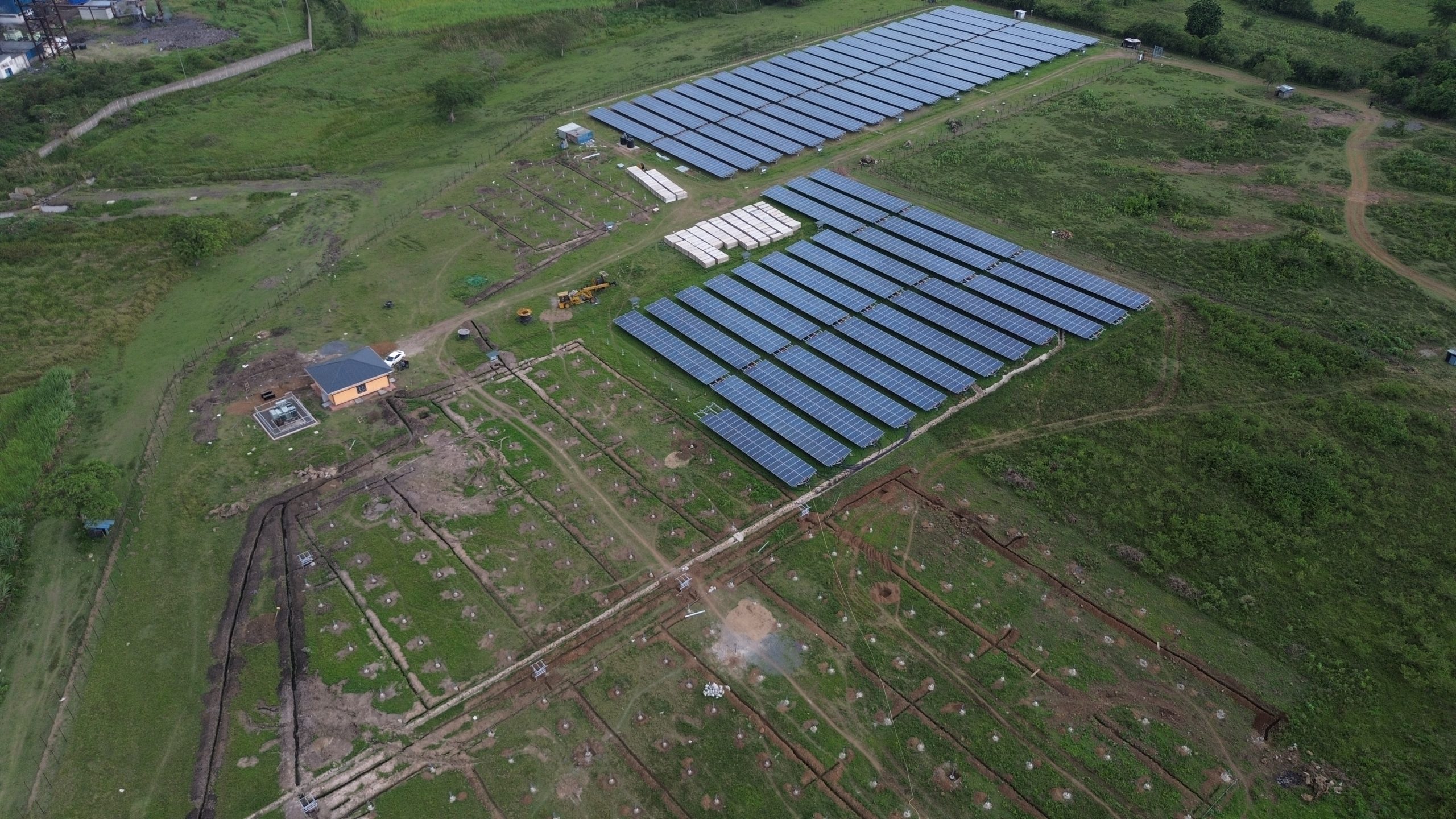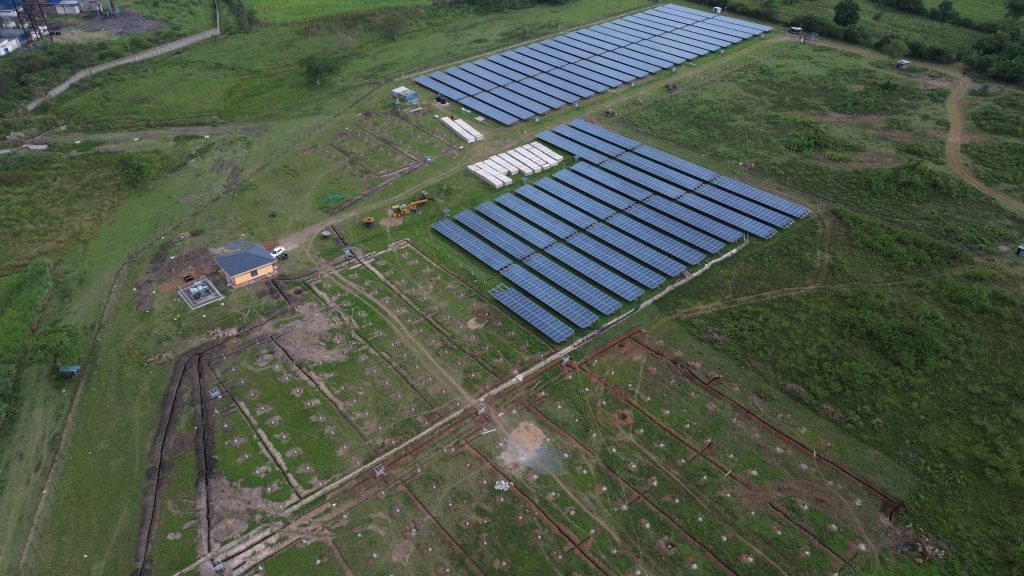
01 May From Rooftops to Rural Areas: Cost-Effective Solar Solutions
The demand for reliable, sustainable, and affordable energy solutions is increasing worldwide. Solar energy, in particular, has gained traction as one of the most cost-effective and eco-friendly options. In many regions, especially those with unreliable or no access to electricity grids, solar solutions have become vital for both urban and rural communities. In Kenya, where energy demand is growing, solar energy has proven to be a key player in bridging the energy gap. This article explores cost-effective solar solutions and their growing impact, from city rooftops to rural areas.

The Rise of Solar Energy in Urban and Rural Areas
In urban areas, the adoption of solar solutions has been driven by increasing energy costs and the growing awareness of environmental sustainability. Solar energy not only helps reduce electricity bills but also provides an opportunity for homes and businesses to generate their own power, making them less dependent on national grids.
In rural areas, where access to the power grid is often limited or unreliable, solar power provides a lifeline. Solar solutions, such as rooftop panels and solar-powered mini-grids, are enabling households and businesses to tap into renewable energy sources without the need for costly infrastructure investments. This shift toward solar solutions is transforming both rural and urban landscapes, providing cleaner, more reliable, and sustainable energy to millions of people.
Benefits of Cost-Effective Solar Solutions
The benefits of solar solutions extend far beyond just providing electricity. One of the most notable advantages is cost savings. For both urban and rural residents, solar systems significantly reduce electricity bills over time. With the declining cost of solar panel installations and the advent of innovative financing models, such as pay-as-you-go systems, solar energy is becoming more affordable and accessible to many.
Furthermore, solar solutions contribute to environmental sustainability. Unlike conventional energy sources that rely on fossil fuels, solar energy is clean, renewable, and non-polluting. By reducing reliance on fossil fuels, solar energy helps combat climate change and reduces carbon footprints, an essential factor as Kenya works towards its climate goals.
Solar Solutions in Rural Areas: Empowering Communities
In rural areas, where grid electricity may be unreliable or nonexistent, solar solutions offer several transformative benefits. Solar-powered lights and home systems provide families with reliable, safe lighting after dark, which is crucial for daily activities such as studying, cooking, and healthcare. In addition, solar energy can be used to power appliances, such as refrigerators, which helps reduce food spoilage and supports small businesses, especially in agriculture.
One of the most impactful solar solutions in rural areas is solar-powered water pumps. These systems are helping farmers access water more efficiently for irrigation and livestock. By reducing the cost of energy needed for water pumping, farmers can increase agricultural productivity and improve food security. Solar-powered pumps are particularly valuable in regions where water scarcity is a significant concern.
Solar Solutions in Urban Areas: Addressing High Energy Costs
In urban areas, high energy costs are a pressing issue for many households and businesses. Solar energy offers a solution that can reduce dependence on expensive electricity from the grid. For homeowners, solar panels installed on rooftops can generate enough power to reduce or eliminate electricity bills, depending on the size of the system. The growing trend of rooftop solar installations has made it easier for homeowners to access clean energy, contributing to a more sustainable urban environment.
Businesses in urban centers also benefit from solar. With high operational costs, especially for industries that require significant energy use, solar power offers a way to reduce utility bills and achieve more predictable energy costs. Moreover, the use of solar energy aligns with corporate social responsibility goals, as many companies are increasingly focused on reducing their environmental impact and promoting sustainability.
Affordable Solar Solutions: Financing and Government Support
While the benefits of solar solutions are clear, the initial cost of installation can still be a barrier for many. However, innovative financing models have made solar systems more accessible. In Kenya, providers like Spenomatic Solar offer affordable solar solutions through flexible payment plans. These financing options allow customers to pay for their solar systems over time, alleviating the upfront financial burden.
Government initiatives and policies are also playing an important role in promoting solar energy adoption. Kenya’s government has provided incentives, such as tax exemptions on solar equipment, to make solar solutions more affordable. Additionally, international organizations and non-governmental organizations (NGOs) have collaborated with local communities and businesses to fund solar projects, particularly in off-grid areas.
Spenomatic Solar’s Role in Providing Cost-Effective Solutions
Spenomatic Solar has been instrumental in making solar energy accessible to a broader population. The company has been a key player in offering high-quality, cost-effective solar solutions tailored to the needs of both urban and rural customers. Through its extensive experience and expertise, Spenomatic Solar provides customized solutions that ensure maximum efficiency and long-term benefits for users.
Spenomatic Solar’s approach is focused on affordability, sustainability, and customer satisfaction. By offering various solar energy products, from small home solar systems to larger installations for businesses and communities, the company is helping drive solar energy adoption across Kenya. Our financing options, including pay-as-you-go systems, make it easier for people to transition to solar energy without significant upfront costs.
Conclusion
Solar energy is revolutionizing the way both urban and rural communities access power. With the growing availability of cost-effective solar solutions, solar power is becoming a viable option for households and businesses alike. The adoption of solar energy is not only helping reduce energy costs but is also playing a crucial role in fostering environmental sustainability. As solar technology continues to advance, the potential for solar solutions to drive development, improve living standards, and promote clean energy is immense.
FAQs
1. How do solar solutions benefit rural communities?
In rural areas, solar solutions provide reliable lighting, safe water access, and power for small businesses. Solar-powered water pumps help increase agricultural productivity, while solar systems for homes and businesses improve the overall quality of life.
2. Are solar solutions cost-effective for urban households?
Yes, solar solutions can significantly reduce electricity bills in urban areas. By installing solar panels on rooftops, homeowners can generate their own power and reduce dependence on the national grid, leading to long-term savings.
3. How can I afford a solar system in Kenya?
Many solar providers, including Spenomatic Solar, offer financing options that allow customers to pay for their solar systems over time. Additionally, government incentives and partnerships with international organizations have made solar energy more affordable.
4. What role does Spenomatic Solar play in the Kenyan solar market?
Spenomatic Solar provides high-quality, affordable solar solutions tailored to the needs of both urban and rural customers. Our financing options and expert installation services ensure that solar energy is accessible to more people across Kenya.
5. How does solar energy help reduce Kenya’s carbon footprint?
Solar energy reduces reliance on fossil fuels, which are a major source of greenhouse gas emissions. By adopting solar solutions, individuals and businesses in Kenya contribute to a cleaner, greener environment and help mitigate the effects of climate change.


No Comments